Accreditations and Licensures

San Antonio Regional Hospital License

San Antonio Clinical Laboratory License

San Antonio Pharmacy License

San Antonio Radiology Accreditations
The American College of Radiology (ACR) has awarded accreditation to San Antonio Regional Hospital for the achievement of high practice standards after a peer-review evaluation of its practice. Image quality and procedure evaluations are conducted by board-certified radiologists and medical physicists who are experts in the field.
The program also evaluates personnel qualifications, adequacy of facility equipment, quality control procedures, and quality assurance programs. All findings are reported to the hospital via a comprehensive report that includes recommendations for improvement.
When you choose an ACR-accredited facility, you know that:
- Your hospital, clinic or health center has voluntarily gone through a rigorous review process to be sure it meets nationally-accepted standards.
- The personnel are well qualified, through education and certification, to perform and interpret your medical images and administer your radiation therapy treatments.
- The equipment is appropriate for the test or treatment you will receive, and the facility meets or exceeds quality assurance and safety guidelines.

San Antonio STEMI-receiving Center Designation
San Antonio Regional Hospital is designated by Inland Counties Emergency Medical Agency (ICEMA) as a receiving center in San Bernardino County for a particular kind of heart attack called a “STEMI”. ST elevation myocardial infarction heart attacks, or STEMI, are caused by a clot or clots in one or more of the coronary arteries and require treatment within 90 minutes after the attack. (ST refers to a segment on the wave on the electrocardiogram doctors look at to determine a STEMI heart attack.) Inland Counties Emergency Medical Agency designated San Antonio Regional Hospital as a STEMI-receiving center based on the experience and expertise of its medical team and the advanced technology and processes the hospital already has in place to rapidly handle heart-attack patients.

The Joint Commission (TJC) Hospital Accreditation
The Joint Commission serves to help ensure and monitor the quality outcomes and patient safety of patient care in hospitals. Our organization is committed to providing safe and quality care to all patients served.
The Joint Commission accreditation means that a hospital voluntarily sought accreditation and met national health, quality, and safety standards. We understand how important reliable information is to you and your family when making healthcare decisions. Visit The Joint Commission website to learn more about quality and safety in healthcare at www.jointcommission.org.

The Joint Commission (TJC) Total Hip and Knee Replacement Advanced Certification
San Antonio Regional Hospital has earned The Joint Commission’s Gold Seal of Approval® for Advanced Total Hip and Knee Replacement Certification by demonstrating continuous compliance with The Joint Commission’s performance standards. The Gold Seal is a symbol of quality that reflects a healthcare organization’s commitment to providing safe and quality patient care.
The certification, offered in collaboration with the American Academy of Orthopaedic Surgeons, focuses on the pre-surgical orthopedic consultation to the intraoperative, hospitalization or ambulatory surgical center admission, rehabilitation activities, and follow-up visit with the orthopedic surgeon.
“Advanced Total Hip and Replacement Certification recognizes healthcare organizations committed to fostering continuous quality improvement in patient safety and quality of care,” says Mark Pelletier, RN, MS, chief operating officer, Accreditation and Certification Operations, and chief nursing executive, The Joint Commission.

The Joint Commission (TJC) Primary Stroke Certification
An Antonio Regional Hospital earned The Joint Commission’s Gold Seal of Approval® as a Certified Primary Stroke Center. The hospital is providing care that meets the highest national standards for stroke treatment. Stroke victims typically have a crucial three-hour window to receive the most effective treatment. Receiving designation as a Primary Stroke Center means that San Antonio has proven it provides rapid, state-of-the-art care to stroke victims, significantly improving their outcomes.

Commission on Cancer Accreditation
The Commission on Cancer (CoC) of the American College of Surgeons (ACoS) has granted Three-Year Accreditation to the cancer program at San Antonio Regional Hospital. To earn voluntary CoC accreditation, a cancer program must meet 34 CoC quality care standards, be evaluated every three years through a survey process, and maintain levels of excellence in the delivery of comprehensive patient-centered care.

ACC Chest Pain Center with Primary PCI Accreditation
The American College of Cardiology has recognized San Antonio Regional Hospital for its demonstrated expertise and commitment in treating patients with chest pain. San Antonio Regional Hospital was awarded Chest Pain Center Accreditation with Primary PCI (percutaneous coronary intervention) in January 2018 based on a rigorous onsite evaluation of the San Antonio Heart team’s ability to evaluate, diagnose, and treat patients who may be experiencing a heart attack.
Hospitals that have earned ACC Chest Pain Center with Primary PCI Accreditation have proven exceptional competency in treating patients with heart attack symptoms and have primary PCI available 24/7, every day of the year. PCI is also known as coronary angioplasty. It is a non-surgical procedure that opens narrowed or blocked coronary arteries with a balloon to relieve symptoms of heart disease or reduce heart damage during or after a heart attack.

Geriatric ED Accreditation for Senior-Focused Emergency Services
The American College of Emergency Physicians (ACEP), with support from The Gary and Mary West Health Institute and John A. Hartford Foundation, has granted San Antonio Regional Hospital Level 3 Geriatric Emergency Department (GED) accreditation because of the hospital’s outstanding efforts to provide the highest standards of care to the community’s senior population.
The GEDA accreditation program is the culmination of years of progress in emergency care of older adults. In 2014, ACEP along with the Society for Academic Emergency Medicine, Emergency Nurses Association, and American Geriatrics Society, developed and released geriatric ED guidelines, recommending measures ranging from adding geriatric-friendly equipment to specialized staff, to more routine screening for delirium, dementia, and fall risk, among other vulnerabilities.


 The Joint Commission serves to help ensure and monitor the quality outcomes and patient safety of patient care in hospitals. Our organization is committed to providing safe and quality care to all patients served.
The Joint Commission serves to help ensure and monitor the quality outcomes and patient safety of patient care in hospitals. Our organization is committed to providing safe and quality care to all patients served. San Antonio Regional Hospital earned The Joint Commission’s Gold Seal of Approval® as a Certified Primary Stroke Center. The hospital is providing care that meets the highest national standards for stroke treatment. Stroke victims typically have a crucial three-hour window to receive the most effective treatment. Receiving designation as a Primary Stroke Center means that San Antonio has proven it provides rapid, state-of-the-art care to stroke victims, significantly improving their outcomes.
San Antonio Regional Hospital earned The Joint Commission’s Gold Seal of Approval® as a Certified Primary Stroke Center. The hospital is providing care that meets the highest national standards for stroke treatment. Stroke victims typically have a crucial three-hour window to receive the most effective treatment. Receiving designation as a Primary Stroke Center means that San Antonio has proven it provides rapid, state-of-the-art care to stroke victims, significantly improving their outcomes. 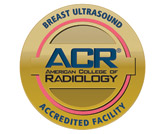
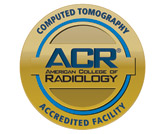
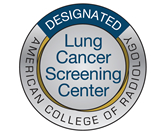
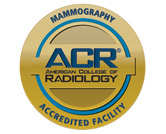
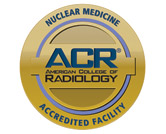
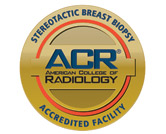
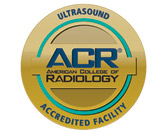
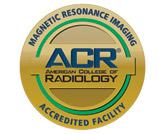
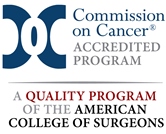 The Commission on Cancer (CoC) of the American College of Surgeons (ACoS) has granted Three-Year Accreditation to the cancer program at San Antonio Regional Hospital. To earn voluntary CoC accreditation, a cancer program must meet 34 CoC quality
care standards, be evaluated every three years through a survey process, and maintain levels of excellence in the delivery of comprehensive patient-centered care.
The Commission on Cancer (CoC) of the American College of Surgeons (ACoS) has granted Three-Year Accreditation to the cancer program at San Antonio Regional Hospital. To earn voluntary CoC accreditation, a cancer program must meet 34 CoC quality
care standards, be evaluated every three years through a survey process, and maintain levels of excellence in the delivery of comprehensive patient-centered care. The
American College of Cardiology has recognized San Antonio Regional Hospital for its demonstrated expertise and commitment in treating patients with chest pain. San Antonio Regional Hospital was awarded Chest Pain Center Accreditation with Primary
PCI (percutaneous coronary intervention) in January 2018 based on a rigorous onsite evaluation of the San Antonio Heart team’s ability to evaluate, diagnose, and treat patients who may be experiencing a heart attack.
The
American College of Cardiology has recognized San Antonio Regional Hospital for its demonstrated expertise and commitment in treating patients with chest pain. San Antonio Regional Hospital was awarded Chest Pain Center Accreditation with Primary
PCI (percutaneous coronary intervention) in January 2018 based on a rigorous onsite evaluation of the San Antonio Heart team’s ability to evaluate, diagnose, and treat patients who may be experiencing a heart attack.